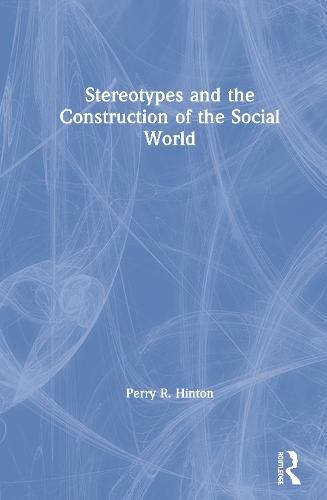Readings Newsletter
Become a Readings Member to make your shopping experience even easier.
Sign in or sign up for free!
You’re not far away from qualifying for FREE standard shipping within Australia
You’ve qualified for FREE standard shipping within Australia
The cart is loading…






Stereotypes and the Construction of the Social World explores the complexity of stereotypes, guiding the reader through issues of definition and theoretical explanations from psychology and other disciplines. The book examines why people use stereotypes, which have often been represented as inaccurate, rigid and discriminatory. If that is what they are, then why would people employ such ‘faulty’ or ‘biased’ views of others?
While this book presents a detailed and comprehensive analysis of the psychological research into the individual use of stereotypes, it also presents this research within its ideological and historical context, revealing the important sociocultural factors in what we mean by ‘stereotypes’. From the politics of representation and intergroup power relations, alongside individual social cognitive issues, the book provides a comprehensive and cross-disciplinary account of stereotypes and stereotyping.
Featuring a wealth of real-world examples, it will be essential reading for all students and researchers of stereotypes.
$9.00 standard shipping within Australia
FREE standard shipping within Australia for orders over $100.00
Express & International shipping calculated at checkout
Stereotypes and the Construction of the Social World explores the complexity of stereotypes, guiding the reader through issues of definition and theoretical explanations from psychology and other disciplines. The book examines why people use stereotypes, which have often been represented as inaccurate, rigid and discriminatory. If that is what they are, then why would people employ such ‘faulty’ or ‘biased’ views of others?
While this book presents a detailed and comprehensive analysis of the psychological research into the individual use of stereotypes, it also presents this research within its ideological and historical context, revealing the important sociocultural factors in what we mean by ‘stereotypes’. From the politics of representation and intergroup power relations, alongside individual social cognitive issues, the book provides a comprehensive and cross-disciplinary account of stereotypes and stereotyping.
Featuring a wealth of real-world examples, it will be essential reading for all students and researchers of stereotypes.